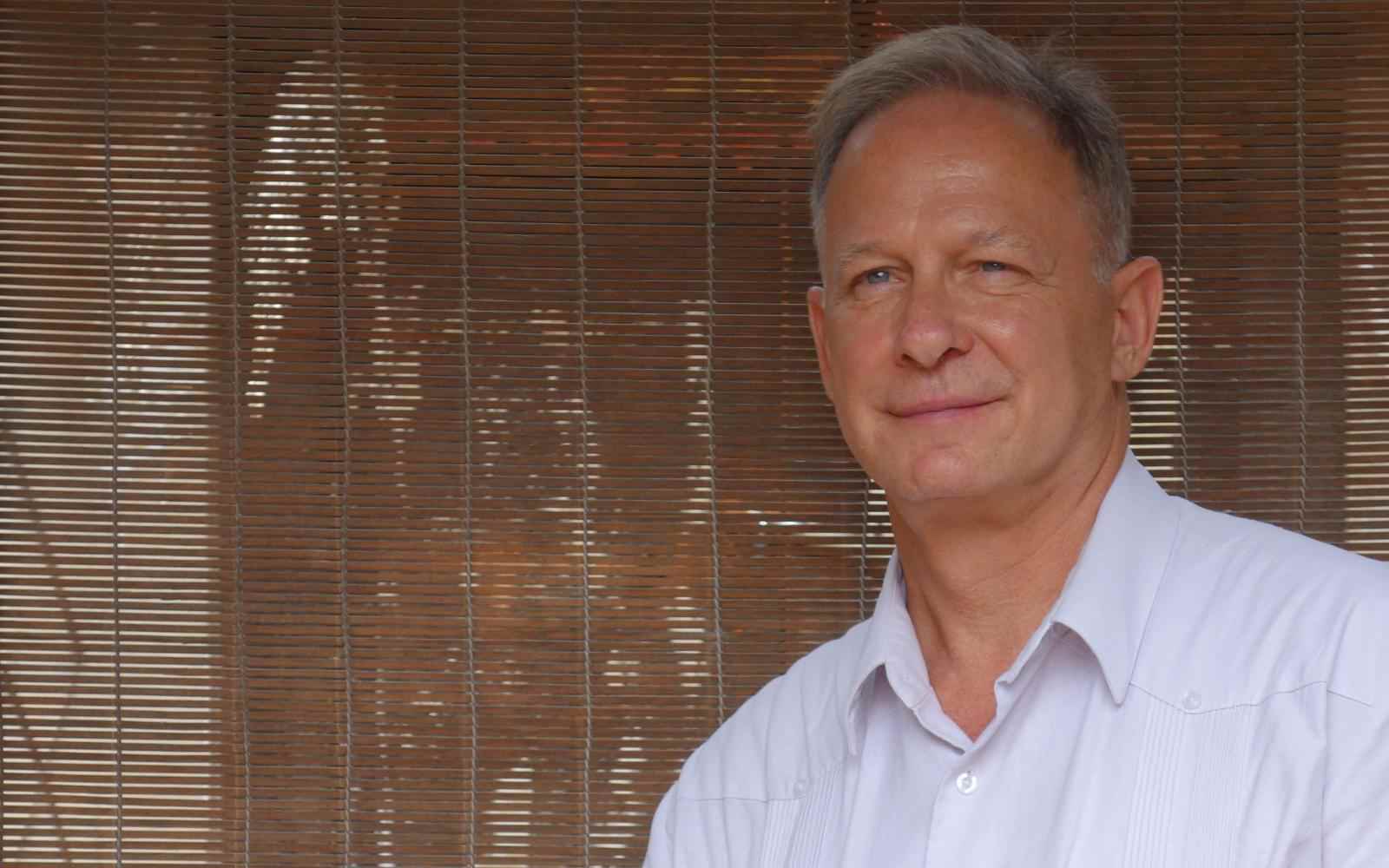
Alex Vesey
Alex Vesey is the Venture Manager for Ashoka US. She graduated Sarah Lawrence College with a double major in Creative Writing and Latin. At SLC, she founded her campus's Disability Alliance, which grew into a social and activist group for students with disabilities. After graduation, she spent time at a variety of health and disability organizations. One of her favorite things about her work with Ashoka is the opportunity to learn broadly about the exciting work changemakers are doing in so many sectors, from immigration to civic participation to gun violence prevention and beyond. She lives in DC with a sweet little cat and is currently attending graduate school. In her other life, she writes fiction about vampires, robots, and mermaids.
Wayne Silby

Wayne Silby is a pioneering impact investor who transformed the financial industry's approach to socially responsible investing. In 1976, he co-founded the Calvert Fund, which he converted in 1982 into the Calvert Social Investments Fund, the first socially responsible mutual fund, screening investments for environmental and labor practices while committing 1% of assets to social justice initiatives. Under Wayne's leadership, Calvert grew to manage over $35 billion in assets before its 2017 sale to Eaton Vance. Wayne also founded the Calvert Foundation (now managing over $500 million in impact investments), ImpactAssets (managing over $1 billion), and Social Venture Circle, a peer-to-peer network for socially conscious entrepreneurs.
The Entrepreneur
In 1976, Wayne founded the Calvert Fund with fellow Wharton classmate, John Guffey, with Wayne serving as chairman. The Calvert Fund was one of the first variable-rate money market funds, which invested in a combination of short-term and long-term securities, refinancing government-insured corporate debt. This provided both a reliable and above-average return on investment. By 1982, the fund managed more than $1 billion in assets. At the time, it was Washington’s largest money market fund and the highest-yield fund nationally.
In 1982, Wayne transformed the Calvert Fund into the Calvert Social Investments Fund, the first socially responsible mutual fund, today known as Calvert. He developed a range of investment criteria, including environmental and labor issues, product quality, and divestment from South Africa’s Apartheid regime. He also committed 1% of the fund’s assets to be deployed at below-market rates to promote issues of social justice. Further, he carved out resources to do venture investing in small companies that represented the kind of future he wanted to create, such as producers of environmentally friendly household goods. Calvert’s advisory board included advocates for clean energy and environmental causes, including Ashoka Fellow Amory Lovins.
Many of Wayne’s colleagues were skeptical of the pivot towards socially conscious investing. Calvert’s key managers voted against this shift in priorities, although their votes were non-binding, and his partner abstained from voting, making Wayne the only ‘yes’ vote behind this decision. This new approach, however, proved remarkably successful.
In 1987, Wayne’s investment firm spun off the Calvert Foundation due to receiving so much interest in their 1% social justice program. Calvert Foundation is a separate nonprofit entity in which people could invest and has since been recognized as a community development financial institution (CDFI) by the federal government. Their assets are now in the hundreds of millions and none of their investors has ever lost money. They have received attention from the broader finance community, such as when Citibank asked them for help investing $200 million, which became Citibank’s Communities at Work fund.
Calvert’s Special Equities impact program, which invests in small enterprises with the potential to benefit people and planet as well as profit, has invested in more than 80 companies, including the environmentally friendly cleaning company Seventh Generation, on which they received a 40-times return on investment. They also invested in companies producing natural pesticides and organic baby food. Another enterprise they supported was Lumni, which provided student loans, the repayment of which is dependent on the borrower’s future earnings, a proof-of-concept that the United States government has adopted for some of its student loan programs.
Wayne also co-founded ImpactAssets, a donor advised fund that now manages more than $1 billion in assets, as well as Social Venture Network (now Social Venture Circle), a peer-to-peer organization for socially conscious entrepreneurs. Wayne is active in bringing impact investing and corporate social responsibility to China. He is the founding chair of Syntao Ltd., a CSR consulting firm based in Beijing, and was the first US investor in the China Association of Social Value Investors, an organization on whose board he served for a time.
Calvert manages more than $35 billion in assets today. Wayne retired as Chairman of the Board in 2017, when Calvert was sold to Eaton Vance.
The Vision
Wayne was an early proponent of impact investing, an investment strategy that seeks to generate social and environmental benefits as well as financial returns. He does this primarily through investing in socially conscious businesses and enterprises. He also undertakes strategies like shareholder action resolutions, which are proposals for publicly traded businesses to take specific actions which are voted on at annual board meetings.
Calvert Investments has filed shareholder action resolutions promoting greater racial and gender equity in boardrooms, one of the first funds to do so. They also used shareholder resolutions as a tool for promoting other issues, including environmentally friendly business practices. When they filed a shareholder resolution with Dell Corporation, asking them to report on what happened to their computers after they were sold, Dell’s lawyers were prepared to fight this request in court. However, Calvert’s proposal attracted the attention of the corporation’s founder, Michael Dell, who was convinced this was a good idea, which resulted in Dell founding the first post-consumer waste recycling program for computers.
Wayne’s foundation, The Calvert Foundation, now has more than half a billion dollars invested in a wide-ranging portfolio of initiatives, including solar-powered affordable housing in American cities, schools in India, providing IUD devices for women in the developing world. They also partner with Root Capital, founded by Ashoka Fellow Willy Foote, to nurture farmer co-ops in poor regions of Africa and Latin America.
In 1987, Wayne co-founded Social Venture Network (now called Social Venture Circle). SVC is a peer-to-peer network of CEOs and founders dedicated to demonstrating the value of the “triple-bottom-line" mindset, valuing people, planet, and profit. It continues to be a place where CEOs who are committed to corporate social responsibility convene and share best practices and struggles through yearly gatherings, peer circles, and structured mentoring.
SVC incubated organizations like Common Future, Net Impact, Business Alliance for Local Living Economies (BALLE), the American Sustainable Business Club (ASBC), Investor’s Circle, the first and most active early stage investing network, and B-Lab, which developed the B-Corp model.
Wayne has identified and overcome not just mindset-related obstacles to the spread of impact investing, but also policy obstacles. The U.S. Department of Labor guidelines for large retirement funds include a rule, the “prudent man rule,” that says that fiduciary trustees must make investments with the sole consideration of the beneficiary. Wayne believes that trustees should be able to consider factors beyond pure financial profit, including community well-being and overall quality of life, and accordingly put very small percentages of their assets towards projects that benefit the community. He calls this adjustment “the prudent woman rule,” believing that women are more likely to take broader social good into account.
Wayne speaks to large financial institutions around the world, arguing that, if all major asset fiduciaries dedicated 2% of their investment portfolios at below-market rates to focus on environmental concerns and social justice, this would prevent or mitigate a large amount of volatility caused by environmental instability and social injustice, which would result in more stability and thus a higher rate of return for the other 98% of investments.
The Person
Wayne received a BS from the Wharton School of Business at the University of Pennsylvania and a JD from Georgetown Law School. After graduating from law school, he spent eighteen months hitchhiking across Asia, an experience that inspired him to later add a spiritual and social impact dimension to his work. The Calvert Fund reflected his personal style in its early years, with employees wearing jeans and bare feet to work. This began to change as they grew into a larger organization that routinely handled millions of dollars.
Wayne attended the 1979 Right Livelihood conference in Vermont, named after and focused on the Buddhist principle of earning a livelihood in a way that does not harm others or oneself. This changed the trajectory of his life. Reflecting on his meteoritic financial success, he imagined the epitaph on his gravestone saying that he earned 0.5% more money for his investors than other fund managers did. This did not sit well with him, leading him to launch the Calvert Social Investments Fund.
When Wayne first developed his socially conscious investment criteria and when he launched Social Venture Network, the percentage of businessmen and entrepreneurs concerned with things like corporate social responsibility was much smaller than today. Particularly since the 2008 financial crisis, younger businesspeople are more likely to be drawn to impact investing. He was a pioneer in an environment much more hostile to this concept, where people believed he was “on drugs” and avoided him at conferences. Now, venture capital firms are starting impact investment arms to attract and retain young talent, showing just how far these ideas have spread.
Wayne splits his time between Washington DC and China, where he is active in the movement to bring corporate social responsibility and impact investing to the second largest economy in the world. He spends his summers on Cortes Island, off the coast of Vancouver, Canada. In addition to his investing and nonprofit ventures, he co-founded Zenflo, a mindfulness and wellness company dedicated to bringing floatation tank technology and other neuroscience-backed mindfulness tools to China.